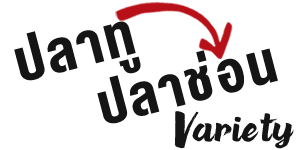Relative clause คือประโยคย่อยๆ
ทำหน้าที่ขยาย Noun ตัวหนึ่งในประโยคหลัก จะเชื่อมกันด้วย Relative Pronoun
กฏการใช้ 2 ข้อ:
1. Relative Clause จะอยู่หลังนามที่ถูกขยาย
2. Relative Pronoun ต้องสอดคล้องกับนามที่ขยาย ตัวอย่าง ของ Relative Pronoun ได้แก่
- that ใช้กับนามที่เป็น คนหรือสิ่งของ [คนซึ่ง อันซึ่ง]
- which ใช้กับนามที่เป็น สิ่งของ [อันซึ่ง]
- who ใช้กับนามที่เป็น คน [ผู้ซึ่ง]
- whose ใช้กับการเป็นเจ้าของ [ซึ่งมี]
- where ใช้กับสถาที่ [ที่ซึ่ง]
- when ใช้กับเวลา [เมื่อ]
1. Relative Clause จะอยู่หลังนามที่ถูกขยาย
2. Relative Pronoun ต้องสอดคล้องกับนามที่ขยาย ตัวอย่าง ของ Relative Pronoun ได้แก่
- that ใช้กับนามที่เป็น คนหรือสิ่งของ [คนซึ่ง อันซึ่ง]
- which ใช้กับนามที่เป็น สิ่งของ [อันซึ่ง]
- who ใช้กับนามที่เป็น คน [ผู้ซึ่ง]
- whose ใช้กับการเป็นเจ้าของ [ซึ่งมี]
- where ใช้กับสถาที่ [ที่ซึ่ง]
- when ใช้กับเวลา [เมื่อ]
ตัวอย่างที่ 1 - that (อันซึ่ง ซึ่ง)
Havaianas are a global fashion that started in Brazil.
(Havaianas เป็นแฟชั่นระดับโลกซึ่งเริ่
- ประโยคหลัก = Havaianas are a global fashion
- Relative Clause = that started in Brazil
- Relative Pronoun = that
(ขยาย global fashion)
Havaianas are a global fashion that started in Brazil.
(Havaianas เป็นแฟชั่นระดับโลกซึ่งเริ่
- ประโยคหลัก = Havaianas are a global fashion
- Relative Clause = that started in Brazil
- Relative Pronoun = that
(ขยาย global fashion)
ตัวอย่างที่ 2 - which [อันซึ่ง ซึ่ง]
Please pass me the books which are on the table.
(ช่วยส่งหนังสือซึ่งอยู่บนโ
- ประโยคหลัก = Please pass me the books
- Relative Clause = which are on the table.
- Relative Pronoun = which
(ขยาย the books)
Please pass me the books which are on the table.
(ช่วยส่งหนังสือซึ่งอยู่บนโ
- ประโยคหลัก = Please pass me the books
- Relative Clause = which are on the table.
- Relative Pronoun = which
(ขยาย the books)
ตัวอย่างที่ 3 - who (คนที่ คนซึ่ง)
My company needs employees who can speak English.
(บริษัทของฉันต้องการพนักงา
- ประโยคหลัก = My company needs employees
- Relative Clause = who can speak English
- Relative Pronoun = who
(ขยาย employees ซึ่งเป็น คน)
My company needs employees who can speak English.
(บริษัทของฉันต้องการพนักงา
- ประโยคหลัก = My company needs employees
- Relative Clause = who can speak English
- Relative Pronoun = who
(ขยาย employees ซึ่งเป็น คน)
ตัวอย่างที่ 4 - whose (ซึ่งมี)
Taekwondo is a martial art whose origins are in Korea.
(เทควันโดเป็นศิลปะการป้องก
- ประโยคหลัก = Taekwondo is a martial art
- Relative Clause = whose origins are in Korea
- Relative Pronoun = whose
(ขยาย a martial art)
** whose ต้องมี Noun ตามหลัง
Taekwondo is a martial art whose origins are in Korea.
(เทควันโดเป็นศิลปะการป้องก
- ประโยคหลัก = Taekwondo is a martial art
- Relative Clause = whose origins are in Korea
- Relative Pronoun = whose
(ขยาย a martial art)
** whose ต้องมี Noun ตามหลัง
ตัวอย่างที่ 5 - where (ที่ซึ่ง)
Hollywood is the place where most movies are made.
(ฮอล์ลีวูดเป็นสถานที่ ที่ซึ่งภาพยนตร์ส่วนใหญ่ถูก
- ประโยคหลัก = Hollywood is the place
- Relative Clause = where most movies are made
- Relative Pronoun = where
(ขยาย the place ซึ่งเป็น สถานที่)
Hollywood is the place where most movies are made.
(ฮอล์ลีวูดเป็นสถานที่ ที่ซึ่งภาพยนตร์ส่วนใหญ่ถูก
- ประโยคหลัก = Hollywood is the place
- Relative Clause = where most movies are made
- Relative Pronoun = where
(ขยาย the place ซึ่งเป็น สถานที่)
ตัวอย่างที่ 6 - when (เมื่อ)
We are living in a time when the world’s economies are connected.
(พวกเรากำลังอาศัยอยู่ในเวล
- ประโยคหลัก = We are living in a time
- Relative Clause = when the world’s economies are connected
- Relative Pronoun = when
(ขยาย a time ซึ่งเป็นเวลา)
We are living in a time when the world’s economies are connected.
(พวกเรากำลังอาศัยอยู่ในเวล
- ประโยคหลัก = We are living in a time
- Relative Clause = when the world’s economies are connected
- Relative Pronoun = when
(ขยาย a time ซึ่งเป็นเวลา)
เนื้อหาดีๆ โดย MyLearnVille












0 ความคิดเห็น: